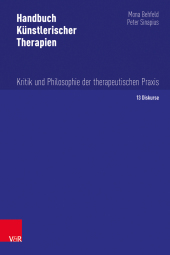 Neuerscheinungen 2015Stand: 2020-02-01 |
Schnellsuche
ISBN/Stichwort/Autor
|
Herderstraße 10
10625 Berlin
Tel.: 030 315 714 16
Fax 030 315 714 14
info@buchspektrum.de |

Gerhard Bergner
Um der Sache willen
Karl Barths Schriftauslegung in der Kirchlichen Dogmatik. Dissertationsschrift
2015. 386 S. 23.2 cm
Verlag/Jahr: VANDENHOECK & RUPRECHT 2015
ISBN: 3-525-56445-7 (3525564457)
Neue ISBN: 978-3-525-56445-5 (9783525564455)
Preis und Lieferzeit: Bitte klicken
Karl Barths biblisch-exegetischen Exkurse sind entscheidend für seine dogmatischen Entscheidungen in der kirchlichen Dogmatik .
"Karl Barth s Text Interpretations in his Church Dogmatics" - behind this subtitle lies nothing less than one of the most important theological methods in the most influential works on dogmatics of the 20th century. In this volume the author tries to comprehend what we can learn from this publication today. In this volume Gerhard Bergner addresses the extensive Biblical-exegetic comments found in Karl Barth s "Church Dogmatics." He shows that the origin of Barth s dogmatics can be understood only after taking these often neglected comments into account. In addition, Bergner highlights the peculiar methods Barth used in his exegesis, where in particular two features may be found: First, his penchant for narrative texts from the Bible and, second, his preference for objective exegesis. Finally, Bergner points to the contribution that Barth s text interpretations offer in light of modern challenges, especially against the background of the "crisis of the Protestant scriptural principle."
The Biblical-exegetic comments by Karl Barth are decisive for understanding the dogmatic decisions he made in his writings on "Church Dogmatics."
´Exegesis, Exegesis and once again Exegesis!´ This was the final call, which Karl Barth addressed to his students in Germany, when he had to emigrate to Switzerland in 1933. In fact his own work stands in straight accordance with this call, particularly his opus magnum, the Church Dogmatics, in which Biblical Exegesis can be seen as the principal theological method. The questions which arise from this fact are at least threefold: How can one describe the relationship between exegetical observations and the generation of dogmatic sentences in the CD? What are the main characteristics of Barths Biblical Exegesis? And how does the ´Doctrine of the Holy Scripture´ in CD I/2 influence his own exegetical work in the following volumes? These are the questions Gerhard Bergner deals with in the first two parts of his work. In the third part he asks what can be learned from Barths Biblical Exegesis in the light of the ´crisis of the Scripture Principle´ in modern Protestantism.


